An axiom-free formalization of category theory in Coq for personal study and practical work - jwiegley/category-theory



Plutus, Haskell, Nix, Purescript, Swift/Kotlin. laser-focused on FP: formality, purity, and totality; repulsed by pragmatic, unsafe, "move fast and break things" approaches
AC24 1DE5 AE92 3B37 E584 02BA AAF9 795E 393B 4DA0
It’s crazy how much bullshit gets peddled…….and it all starts with Guccifer 2.0 and Seth Rich.
You can block me. But that won’t save you from my downvotes, dummy.
Delusional! This guy wants only agreement. Anything else is bot behavior!
You’re definitely not a bot because a bot would never do something so absurd.
Putin living rent free in your head. 🤣
I’ve spent 1.7 years here as a Russian bot spreading propaganda that only ten people see. /s
Look at my history. Do I look like some Russian sleeper cell? Why would they waste their time and money?
Bruh, so is Israel, China, the CIA, North Korea, India, the UK, and many others.
What makes you so sure they’re Russian bots? What are they saying that gives you that impression?
Replying to you from the stupidest clone. This one truly is the slowest. Maybe because the users are testing/running so many bots and addons on this instance.
Decentralization FTW. ;)
Can confirm.
Thanks so much! These are great questions.
What would you ask Simon Peyton Jones?
What would you ask Simon Peyton Jones?
I have long aspired to interview Simon Peyton Jones, whom I consider the most articulate and charismatic figure in the functional programming community. What makes him even more remarkable is his approachability; I reached out to him on LinkedIn—thinking, why not?—and he actually responded. I was so astonished that I initially thought the reply might have come from his son, Michael, whom I occasionally encounter due to my involvement with Cardano and Plutus.
For years, I've dreamed of hosting a podcast where I interview my heroes, blending in crowd-sourced questions alongside my own.
I aim to pose truly insightful questions about the developmental journey of Haskell. I'm uncertain whether I need to center the interview around the publication of his most recent project, Verse, to secure his participation.
Additionally, what areas should I research heavily? I am versed in category theory and functio
Sounds great! Thanks for looking into that. I’m a bit of a jack of all trades. So, I tend to try and thoroughly vet a technology before I really dive in and commit my blood, sweat, and tears.
A couple of weeks ago, I found a previous implementation in Haskell. If I were really approaching the stack that I think will be best for the future, perhaps I should fork that one. I’m wishing Purescript was ready for prime time (was popular enough to have more educational material) because that would be a no brainer…especially the work they’ve recently been doing with a Chez Scheme back end.
I’ll start to look into it more in the coming week. Thank you so much! I have a community setup for this idea at https://infosec.pub/c/Lemventory
I may change it, though, since this is no longer Lemmy-related. As I realized, inventory is just not suited to Pub/Sub due to the need to have varying levels of security for the information being broadcast and subscribed to.
I’m a fan of crypto but I happen to hold the strong opinion that BTC’s authentication algorithm shouldn’t have been chosen because it’s not secure enough for future proofing. Furthermore, that BTC tie-in will alienate many people including myself. Anyway, I’d love some help forking NOSTR to NOT use BTC authentication because that task is FAR beyond my skills.
Perhaps I’m the one who’s mistaken.
I came to this conclusion because: From my initial cursory investigation of NOSTR, in all of the instructions to get started I found, the first step was to create a lightning wallet. Maybe I’m incorrect but, from what I understood, BTC’s authentication is one and the same with NOSTR’s authentication.
Edited. Good call.
If you want to have a go at using that NOSTR tech but stripping the lightning wallet thing out for another (less BTC maximalist but equally or even more secure) form of authentication, I’d be very interested. I’m obviously not going to roll my own auth from scratch….but as I see it, tying BTC to it could prevent MANY people from giving an otherwise very promising tech a chance. Besides, there are already far more secure cryptographic elliptical curves in use by other cryptocurrencies that NOSTR conspicuously passed over in favor of BTC’s.
I probably don’t have the resources nor experience to do it myself but I’d love for this tech to exist.
If you find that the fediverse isnt the right tech for this kind of thing, have a look at NOSTR. I recently learned about it in the context of my hypothetical Lemmy fork. For what I am trying to do with it (decentralized retail inventory), NOSTR was much better suited than Lemmy. My only issue with it is that it ties bitcoin lightning walllets into its authentication mechanism (a dealbreaker for me at least). My future uses for it would be FAR different than yours but it also seems more well-suited to activism as well.
I got you, fam(ily). It has a real smooth, simple ring to it. ;)
Temu: contribute to the irreversible heat death of your own planet just to save some money on useless, piss poor quality trinkets created out of cancer-causing, hazardous materials using slave labor coupled with unfair market practices that are then shipped thousands of miles over the oceans using the world's worst polluting container ships.... like a billionaire.
That should be their slogan.
edit: added slave labor, unfair market practices edit: added hazmat
Judging by the state of the US, you're much more likely to be right than I am, you cynical bastard!
😂
I think I would just need one. We'd have to work in opposing shifts to get my billion Euro idea out the door in a more reasonable time frame than the one I have currently been working in.
Laziness in Haskell — Part 2: Why not Strict Haskell?
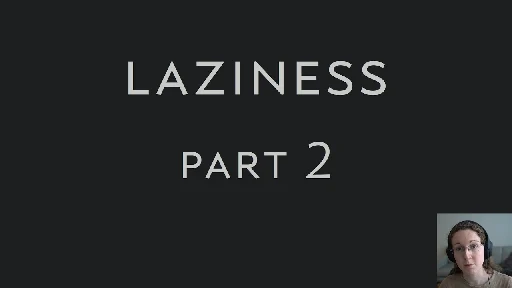
YouTube Video
Click to view this content.
Answering the question raised at the end of Part 1, we take a look at how a hypothetical Strict Haskell would tie the compilers hands despite pervasive purity. We also examine how laziness permits optimizations that come with no intrinsic cost and compare its benefits to a strict language with opt-in laziness.
Part 1:
• Laziness in Haskell — Part 1: Prologue
Series Playlist:• Laziness in Haskell
— Contact: • Tweag Website: https://www.tweag.io/ • Tweag Twitter: https://twitter.com/tweagio • Alexis King's Twitter: https://twitter.com/lexi_lambda
Hackathon Workshop - Intro to building on Cardano and Smart Contracts with Aiken

YouTube Video
Click to view this content.
In the second webinar from our Hackathon series, Fabian Bormann provides an intro into building on Cardano including a list of tools to support you. Next, Mateusz Czeladka discusses how to harness the power of smart contracts with Aiken.
Click the link below to learn more and to register for the Cardano Summit Hackathon. https://summit.cardano.org/hackathon/
Why Haskell Is Next (19:19)
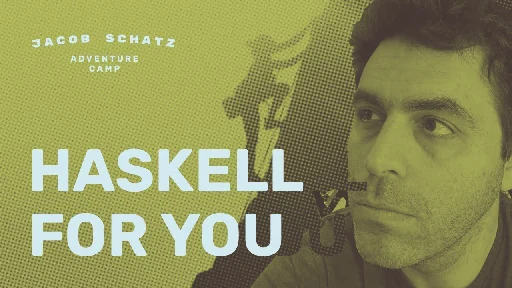
YouTube Video
Click to view this content.
We teach you Haskell
#239 Grigore Rosu: The K framework - a framework to formally define all programming languages
YouTube Video
Click to view this content.
In the past few years, we witnessed the development of multiple smart contract languages - Solidity, Viper, Michelson, Scilla etc. These languages need to enable developers to write correct, predictable behavior smart contract code. Each language development effort therefore ends up spending resources into building formal verification toolsets, compilers, debuggers and other developer tools. In this episode, we are joined by Grigore Rosu, Professor of computer science at UIUC [University of Illinois at Urbana-Champaign] for a deep dive into the K framework. The K framework is mathematic logic and language that enables language developers to formally define all programming languages; such as C, Solidity and JavaScript. Once a language is formally specified in the K framework, the framework automatically outputs a range of formal verification toolsets, compilers, debuggers and other developer tools for it. Updates to the language can be made directly in K. This technology has massive
Domain-Driven Design: Tackling Complexity in the Heart of Software by Eric Evans


cross-posted from: https://programming.dev/post/719255
Back Cover Text
The software development community widely acknowledges that domain modeling is central to software design. Through domain models, software developers are able to express rich functionality and translate it into a software implementation that truly serves the needs of its users. But despite its obvious importance, there are few practical resources that explain how to incorporate effective domain modeling into the software development process.
Domain-Driven Design fills that need. This is not a book about specific technologies. It offers readers a systematic approach to domain-driven design, presenting an extensive set of design best practices, experience-based techniques, and fundamental principles that facilitate the development of software projects facing complex domains. Intertwining design and development practice, this book incorporates numerous examples based on actual projects to illust
category-theory: An axiom-free formalization of category theory in Coq for personal study and practical work by John Wiegley
This development encodes category theory in Coq, with the primary aim being to allow representation and manipulation of categorical terms, as well realization of those terms in various target categories.
CharaChorder typing/chording demo

YouTube Video
Click to view this content.
John Wiegley on Categories and Compilers - The Haskell Cast Ep. 13
Listen to regular interviews with the Haskell community. The podcast covers news, libraries, and whatever other topics we wander onto with our guests.
I listen to this (now very old) episode often to get inspired.
When John starts talking about compiling to categories, at around 14:40 to around 30:00, it gets REALLY interesting.
*😁😁 Hoping to bring this kind of discussion to the new Formal Methods community. 😁😁 * Here's the work he talked about: Compiling to categories by Conal Elliott
I need someone to get into the weeds on compiling programs to "axiomatized closed categories". What are the implications? What are the ramifications?
The Haskell Unfolder Episode 1: unfoldr

YouTube Video
Click to view this content.
nix-github-actions: A library to turn Nix Flake attribute sets into Github Actions matrices

A library to turn Nix Flake attribute sets into Github Actions matrices [maintainer=@adisbladis] - GitHub - nix-community/nix-github-actions: A library to turn Nix Flake attribute sets into Github ...
![GitHub - nix-community/nix-github-actions: A library to turn Nix Flake attribute sets into Github Actions matrices [maintainer=@adisbladis]](https://programming.dev/pictrs/image/293ae8e8-4c96-4a09-b577-7fd01a44c2e7.png?format=webp)
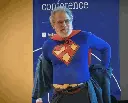
#### **Does God Code in Haskell?**Professor and accomplished programming language researcher Philip Wadler believes that typed lambda calculus was discovered not invented -- part of the underpinnings of the universe itself. As a result, functional programming languages are more fundamental and deepl...
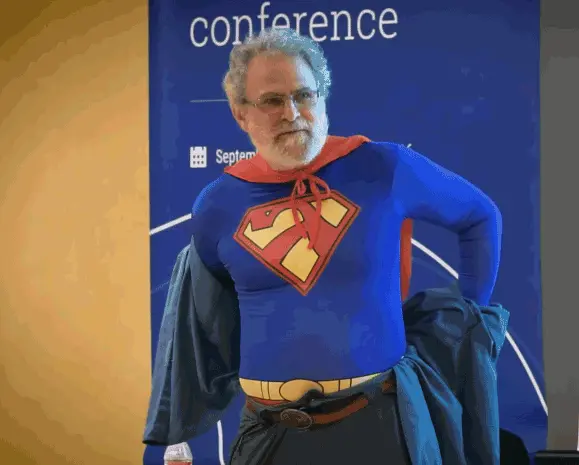
Here's the conclusion of the paper Wadler is referring to in this interview:
Proposition as Types informs our view of the universality of certain programming languages. The Pioneer spaceship contains a plaque designed to communicate with aliens, if any should ever intercept it. They may find some parts of it easier to interpret than others. A radial diagram shows the distance of fourteen pulsars and the centre of the galaxy from Sol. Aliens are likely to determine that the length of each line is proportional to the distances to each body. Another diagram shows humans in front of a silhouette of Pioneer. If Star Trek gives an accurate conception of alien species, they may respond “They look just like us, except they lack pubic hair.” However, if the aliens’s perceptual system differs greatly from our own, they may be unable to decipher these squiggles. What would happen if we tried to communicate with aliens by transmitting a computer program? In the movie Independence Day, the heroe
Visualizing the most beautiful and famous mathematical theorems with Midjourney

A Nix parser written in TypeScript
🎉 We've got a new #SnowfallOrg repository today! 🎉 I've written a (hopefully working) #Nix parser in #TypeScript. I plan on building off of this to try and improve the dev experience of working with Nix Flakes. Stay tuned for that! https://github.com/snowfallorg/sleet #NixOS
Haskell recap for week 26/2023
Haskell recap for week 26/2023 with articles, projects and tutorials.

Charles Scalfini, the CTO of Panoramic Software, makes the case for why programmers should make the leap to functional programming, which promises more maintainable code, and eliminates some of the problems inherent to conventional languages.

A podcast with transcript which may help explain fp to laymen.
This is Fine: Optimism & Emergency in the P2P Network
> The Fediverse – a network comprised of Mastodon, Pleroma and other adjacent projects – suffers from the same glaring contradiction. Similar to email nodes, servers (known as Instances within this network) are branded around common interests, political beliefs or sexualities. Users are encouraged t...
Why Learn Haskell in 2023?
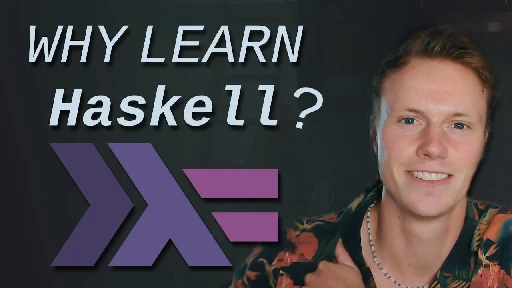
YouTube Video
Click to view this content.
GHC’s Runtime System - Ben Gamari

YouTube Video
Click to view this content.
Simon Peyton Jones | Escape from the ivory tower: The Haskell journey

YouTube Video
Click to view this content.
A great talk by one of the greats to get the ball rolling in this new community.